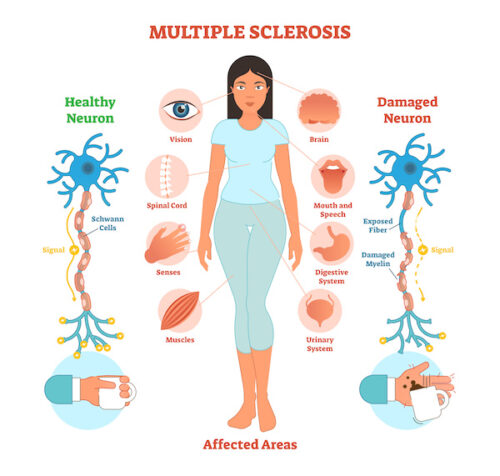Common Health Problems: Fatigue
Many people who, after thorough examination show no detectable cause for their fatigue, are suffering the ill-effects of an unhealthy diet and lifestyle. The rich American diet can wear you down in several ways. The primary fuel for our bodies is carbohydrates. Meats (beef, chicken, fish, etc.) contain little carbohydrate. The primary carbohydrate in cow’s milk is lactose, but, many people cannot digest and utilize it. In the preparation of cheeses, bacteria will ferment almost all the lactose in milk. Thus, many Americans, even those who eat cheese, are on a diet that does not provide enough carbohydrates to generate sufficient high-quality energy. You may have some idea of how important carbohydrates are if you are involved in sports. Long distance runners, before a race, “carbohydrate-load” (often on spaghetti and other forms of pasta) to provide their body with almost immediate clean fuel–glucose–and to fill their muscles and liver cells with long-chain-sugars stored as the substance called glycogen, that will be converted to glucose for use during the marathon race. Athletes who do not have this store of glycogen can be heard complaining about “hitting the wall,” a term that describes exactly how they feel when they’ve run out of energy. Winning a foot race may not be one of your goals, but getting through the day full of energy is possible if you will “carbohydrate-load” three or more times during the day.
Another cause of fatigue is the sludging of blood that follows a meal high in fats. Do you recall going without lunch when you have an important meeting in the afternoon, because experience tells you that soon after a meal you’ll be sleepy and sluggish? Molecules of assorted fats from your meal enters the blood stream from the gut, and immediately coat the circulating red blood cells. Uncoated blood cells bounce off each other naturally and are flexible enough to bend and twist through the smallest capillaries, in their zeal to take blood to all the cells in all the tissues. Once coated with fat, however, they lose that essential elasticity: they stick together in clumps and become relatively rigid. The overall effect is a lowered oxygen content in the blood and worsened circulation to your tissues, which you experience as muscular weakness and lassitude.
Some people also suffer from food allergies that result in a condition known to the medical profession as “tension-fatigue syndrome.” The most common cause of a food allergy is milk; eggs, chocolate, wheat, corn, and citrus fruits are other common sources of allergens.
When I see patients who complain of persistent fatigue, I follow a series of steps to bring them relief. First I rule out any physical illness by taking a careful history and making a thorough physical examination along with appropriate laboratory tests. Do they use depressant drugs–alcohol or other “recreation” drugs? Are they taking doctor-prescribed or over-the-counter drugs that might easily cause fatigue, such as tranquilizers, sedatives, Beta-blocker pills for lowering blood pressure? (The list is endless. If they are taking any medication at all, they should consider it from the very first as a possible cause of fatigue or of any other discomfort they may be suffering.)
Once I’m sure they are free of any treatable physical illness and from the effects of drugs, I look into their diet and lifestyle. Are they eating a high-carbohydrate, low-fat diet? Do they get daily exercise, which is known to relieve depression and anxiety, and which contributes to a feeling of energetic well-being?
Lastly, I consider emotional factors, such as depression (which can range from mild to severe). The emotional problem that is causing the fatigue may be as commonplace as family strains, job dissatisfaction, or money worries. Often people are simply bored–life is no longer enjoyable for them. I encourage people who are enduring situations that are detracting from their health and happiness to resolve them, and, when necessary, to get help in doing so. Life is too short (and too wonderful) to waste another day on being miserable in body and unhappy in spirit.
Recommendations
+-See your doctor to rule out physical health problems. Change to a health-supporting diet and lifestyle. Consider the possibility of a food allergy. Take steps to make every day an enjoyable and productive day.
References
+-Nieman, D. Vegetarian dietary practices and endurance performance. Am J Clin Nutr 48(3 suppl):754, 1988
Kirwan, J. Carbohydrate balance in competitive runners during successive days of intensive training. J Appl Physiol 65:2601, 1988
Editorial–Fatigue. Lancet 2:546, 1988
Evans, W. Dietary carbohydrates and endurance exercise. Am J Clin Nutr 41:1146, 1985
Editorial–Nutrition in sport. Lancet 1:1297, 1987
Kuo, P. The effect of lipemia upon coronary and peripheral arterial circulation in patients with essential hyperlipemia. Am J Med 26:68, 1959
Freidman, M. Effect of unsaturated fats upon lipemia and conjunctival circulation. A study of coronary-prone (pattern A) men. JAMA 193:882, 1965
Bahna, S. Allergies to milk. Grune & Stratton, NY, 1980, pages 67-69
Shoenfeld, Y. Walking–A Method for Rapid Improvement of Physical Fitness. JAMA 243:2062, 1980
Recommended Articles

Common Health Problems: Multiple Sclerosis (MS) & Diet

Alzheimer's Disease Can Be Safely Prevented and Treated Now





